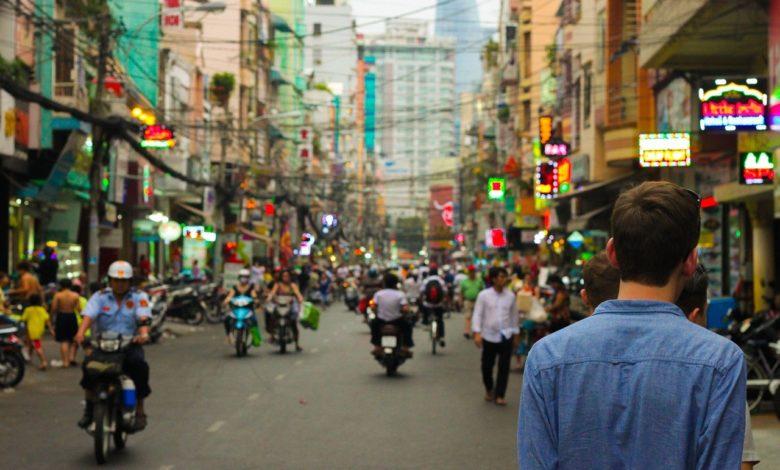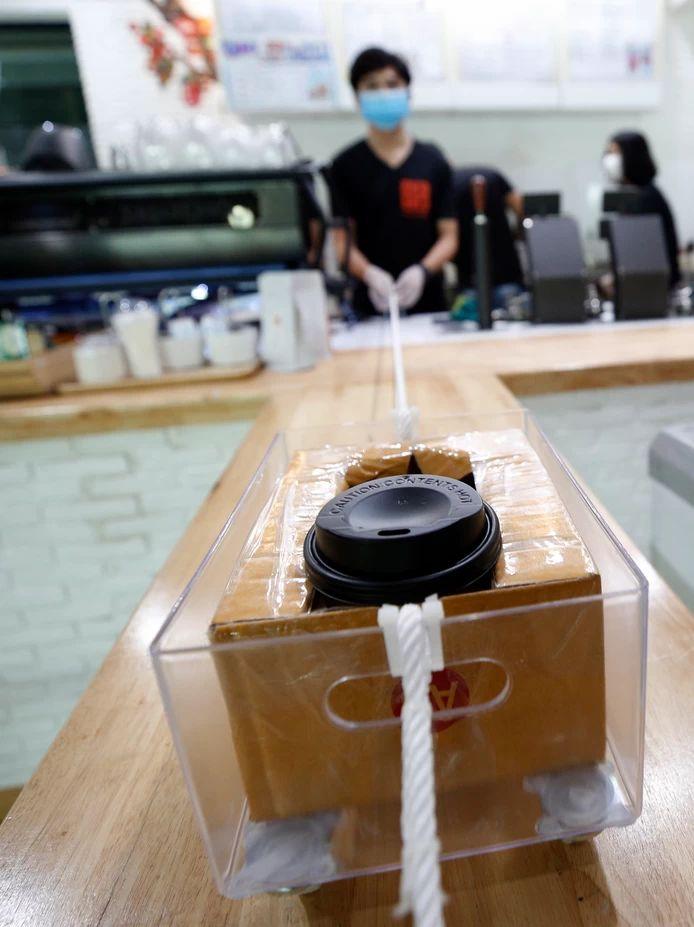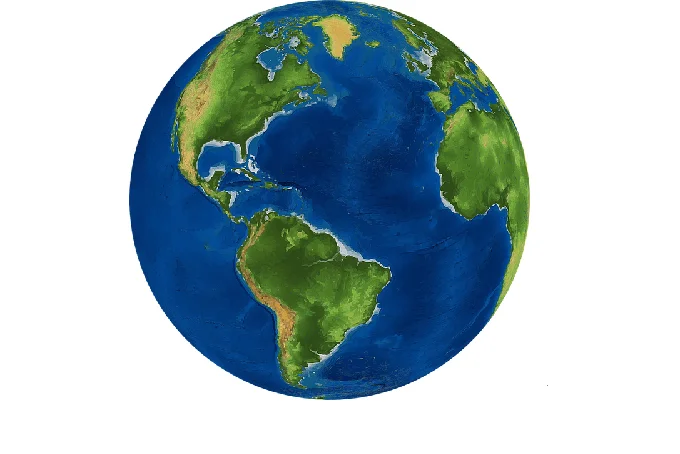Life in China recovers but lockdowns and curfews at rest of the world

Life in China is recovering. In Wuhan, shops sell fruit and vegetables again. The zoo opens in Beijing. This regained freedom contrasts sharply with travel restrictions, lockdowns, and curfews in the rest of the world.
Public life is picking up again in China, but Beijing is taking drastic measures to combat new infections from abroad. All flights from abroad are directed to three airports in northern China for the control and possible reception of infected passengers. These are Tianjin, Taiyuan, and Hothot (Inner Mongolia). Healthy passengers are only allowed to travel to Beijing after the check. In recent weeks, China has ‘imported’ more than 80 infections from abroad.
The borders around Wuhan, the seat of the coronavirus, remain locked, but public life in the province is flourishing again. Supermarkets and shops sell fresh fruit and vegetables. Each family has a pass that allows someone to shop for up to two hours. No new infections were detected in Wuhan for the third day in a row.
To get everyone back to work, Prime Minister Li Keqiang puts a stop to all ‘unnecessary restrictions’. “Everyone can go back to their normal life,” said Li. To help people find a job, the government has launched a website with more than ten million vacancies. They must be completed by July.
Iran
Doctors and nurses in Iran see it happen: healthcare is about to collapse. In 16 days, the coronavirus has spread to all 31 provinces. The number of deaths is rising rapidly, to almost 1600. Officially, more than 20,000 people have been infected. Every ten minutes, someone dies from the virus, 50 people become infected every hour, according to the Ministry of Health.
According to doctors, it would be a multiple of it. “Our entire health care system is crashing,” a doctor in Gilan province told British BBC. “We don’t even have enough masks for ourselves. Colleagues die every day,” says the alias Mohammad because his criticism could lead to arrest. “I don’t know how many people have died, but the government is trying to cover up the real magnitude of the crisis. She also lied in the early days.”
A month ago, Tehran said there was no cause for concern. A week later, President Rouhani said that “enemies want to freeze the country.” “We have to continue with our daily lives,” said the president. All the while, the virus outbreak received too little attention. Doctors complain about a lack of test equipment, medicines, oxygen tanks, gloves, and protective gels. The hospitals are full to bursting. According to a doctor, beds have been placed in the local football stadium to accommodate patients.
“My hospital is receiving more than 300 new patients a day,” said a doctor in Golestan Province. After the lax action, it is now the government’s most considerable effort to convince the population of the dangers. Many public buildings are currently closed, but it is challenging to enforce travel restrictions. People travel, go to work, do some shopping. Doctors are therefore afraid that ‘the big blow is yet to come’.
United States
After California, the American states of New York and Illinois are now also restricting the freedom of movement of citizens. The lockdown affects 70 million Americans. Oregon and Connecticut will follow. Everyone who works in non-urgent sectors must stay at home. Large gatherings, including in New York, are prohibited. The government is now under fire again.
US intelligence agencies warned in January and February of the threat of a coronavirus pandemic. They also pointed out to the government the stringent measures that China rolled out to control the outbreak, US security analysts said. In those same months, President Trump downplayed the danger, and hardly any action was taken. The White House parries any criticism.
“The President has made historic, far-reaching decisions, while the media and Democrats then only wanted to focus on that ridiculous impeachment procedure,” said spokesman Hogan Gidley. “This is yet another horrible attempt to rewrite history.”
Middle East
Aid workers in the packed refugee camps in the Middle East are holding their hearts. Social distancing is a luxury, whether it is the many tens of thousands in the Gaza Strip, in Yemen, Libya, Syria, or Turkey. If the virus spreads widely there, it is “a double nightmare,” aid agencies said.
“If the virus reaches us, many people will die,” said Mahmoud Shakskah, a resident of al-Shati camp in Gaza. “And the world will let us die in solitude.” In all refugee camps in the Middle East, residents are crowded together. With already poor living conditions and limited hygiene, it will be impossible to manage an outbreak. 3.6 million people live in emergency shelters in Yemen, 900,000 in Libya, many millions in Syria and Turkey.
“The consequences will be terrible,” says Jan Egeland of the Norwegian Refugee Council. “In places where health care has collapsed, there has been no beginning.” Until now, the camps have somewhat out of reach, but “it is only a matter of time before the virus strikes here,” said Herald Rockenschaub, head of the WHO mission in the Palestinian Territories. Fifty-four infections have already been detected in the Palestinian territories.
India
The government in New Delhi is working to announce a curfew. It is expected to take effect tomorrow and applies to all of India, where more than a billion people live. According to the Ministry of Health, the country has 271 cases of infection. Twenty-two of them have been healed, and four have died.
Thailand
The Thai capital of Bangkok is also partly locked. Governor Aswin Kwanmuang has ordered the closure – from tomorrow until April 12 – of restaurants, shops, markets, schools, stadiums, massage parlors, and golf courses, among others. An exception is only made for supermarkets and pharmacies.

Jordan
In Jordan, a curfew has been in force for all 10 million inhabitants since today. Anyone who ignores the ban can be sentenced to one year in prison, the government said.
Africa
The state of Lagos, the economic center of Nigeria, has banned gatherings of more than 50 people, and the schools will close next week. The most populous country in Africa, which has eight cases of coronavirus, also suspends flights from any country where there are more than 1,000 infections as of Saturday
One of the most affected countries in Africa, Algeria has closed its borders and suspended flights. President also banned rallies, which will paralyze major weekly anti-government protests Rwanda, with 11 Covid-19 patients, bans passenger flights after Friday for 30 days
Kenya, a profoundly religious country like most countries on the continent, has suspended worship in some churches and mosques. The government also says it will make its hand sanitizer and distribute it free of charge to help address shortages
Liberia, which faced a deadly Ebola epidemic several years ago and which has registered two cases of Covid-19, stopped issuing passports to prevent people from traveling and banned l entry to people from countries most affected by the pandemic
Mauritius, in the Indian Ocean, banned entry for tourists for two weeks – and confirmed its first three cases: two workers on a cruise ship and a British tourist Zambia, with two cases of Covid-19, suspended parliamentary activities and decided to close schools and universities on Friday
Somalia, with one case, closed its airspace overnight. Uganda and Botswana, which have not yet had a case, will close schools starting next week. Chad, without any case, suspends all passenger flights and closes certain land borders.
Latin America
Brazil, where President Jair Bolsonaro minimized the disease for weeks and showed himself hugging his supporters when the outbreak had already begun, is the most affected country in the region. On Thursday, it reached its record so far when 249 new cases were known, bringing the total affected in the country to 621. This number includes a total of 17 officials – among ministers, legislators, and advisers – who accompanied Bolsonaro on a tour of the United States last week. The president himself had to undergo the test, although he reported that the result was negative. Six people died of complications from Covid-19.
Chile also had its record day on Thursday when 103 new cases were known, bringing the total to 342. The Piñera government announced a grand plan of $11.75 billion to address the contingency and its economic consequences, and the political parties agreed to postpone the referendum for October. It was scheduled for April on the constitutional reform.
Ecuador is another of the countries where the contagion seems to have exploded, with 53 confirmed cases on Wednesday and another 88 on Thursday.
Two countries in which the first cases were known this week quickly added up to dozens: Venezuela, where 42 are already infected according to official data and Uruguay, where they already number 94. At this point, most of the countries of the continent have taken strong measures to restrict travel and movements of people.




